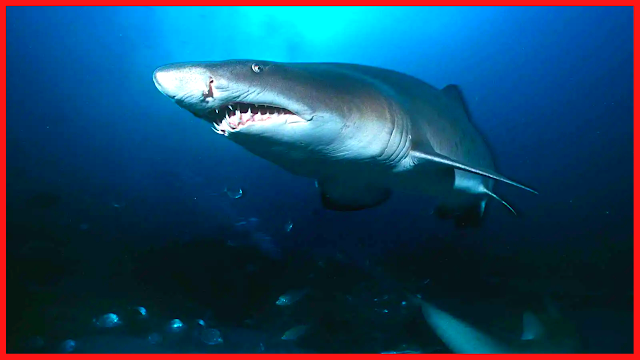Why do sharks attack humans?
 |
| Why do sharks attack humans? |
Despite misleading media reports that shark attacks are on the rise, such attacks on humans are rare and even more deadly. Although the number of recorded shark attacks has increased in recent years, the per capita rate has not increased. Our species is experiencing a massive population explosion, so more people out there are spending time in the water, especially as opportunities for aquatic recreation increase, and so most of us are victims of the Elasmobranch collision. There are. We're also developing more efficient ways of documenting and cataloging competitions that may not have been reported in the past - and perhaps most importantly, we're gaining a better understanding of sharks. Are in the first place.
Very common sense attributes recent shark attacks on humans to attempts to feed them incorrectly. That is, we thought sharks were biting one or two humans because they looked like food, and in most cases, we decided they weren't, sometimes causing fatal damage to the swimmer in question. This is not, as it turns out, completely wrong. However, a close study of shark behavior reveals a constellation of other causes of shark attacks. Picture of surfers, arms hanging from their boards, believed to be sealed under sharks. The shark's vision is so powerful that it is unlikely to seal the surfer. However, in dirty water, the random movement of humans and the difference between their skin and clothing can confuse sharks. Many sharks are thought to experience common disturbances, especially in shallow waters near the coast, where small species such as blacktip sharks and long nose sharks can be fed to small schools. Sharks work hard to see from afar anything that looks like a fish chasing fish - like a foot with light up and down - by chance a man on a muddy shore. In most cases, this type of competition consists of a single bite, after which the shark escapes.
However, deep-sea surfers and other swimmers are attacked if sharks do not consider them food. In the case of the Great White Shark, which is the largest and most endangered species that attack humans, along with bull sharks and tiger sharks, there is overwhelming evidence from survivors that sharks do only that research. There was what they thought. Put foreign bodies in the water. It is true that when the white shark is in cell mode, most attacks do not resemble these excellent hunting techniques. When pumped into the menu, the white shark comes down from the bottom very fast, often breaking the surface and killing the animal in the air before entering to feed. In contrast, most competitions with humans are much less explosive. In fact, one surfer did not notice the shark until he turned on his surfboard. That's right- snacking. Don't use. Even deadly attacks often make the helpless swimmer reluctant to eat after biting a shark once or twice.
Considering the force with which these creatures are able to attack, another explanation is offered: Sharks are only curious and, because they are predominant predators in most marine ecosystems, they are terrified. Their mouths also act as subtle sensory organs, leading sharks to "mouths" on unfamiliar objects to examine them and determine their potential food value. (Their gums and slightly functional teeth are so sensitive that it has been suggested that they can detect potential prey fat. Humans are much smaller in BMI than seals and sea lions.) Therefore, however, At worst, it is the result of such a potential conflict. By actively examining the shark to see if it is suitable for human consumption, without trying to eat it. The difference is significant: sharks do not make "mistakes" during such attacks. They show purposeful, purposeful behavior (which may or may not have negative consequences for the curious human subject).
Another factor that may be in the game is the territoriality of the shark. Although they do not necessarily have terrain-like predators, sharks are predominant. The system is simple: find the best places to hunt the biggest sharks. Infiltration of small sharks is considered bad, and violent intruders are expelled if necessary. Some shark competitions can train the shark's natural instincts to defend its food resources against all visitors.
Whatever the ultimate cause of shark attacks, we are more vulnerable to them. We wiped out their population, about 100 million are deliberately bought every year.
Whatever the ultimate cause of shark attacks, we are more vulnerable to them. We wiped out their population, about 100 million are deliberately bought every year.




0 Comments